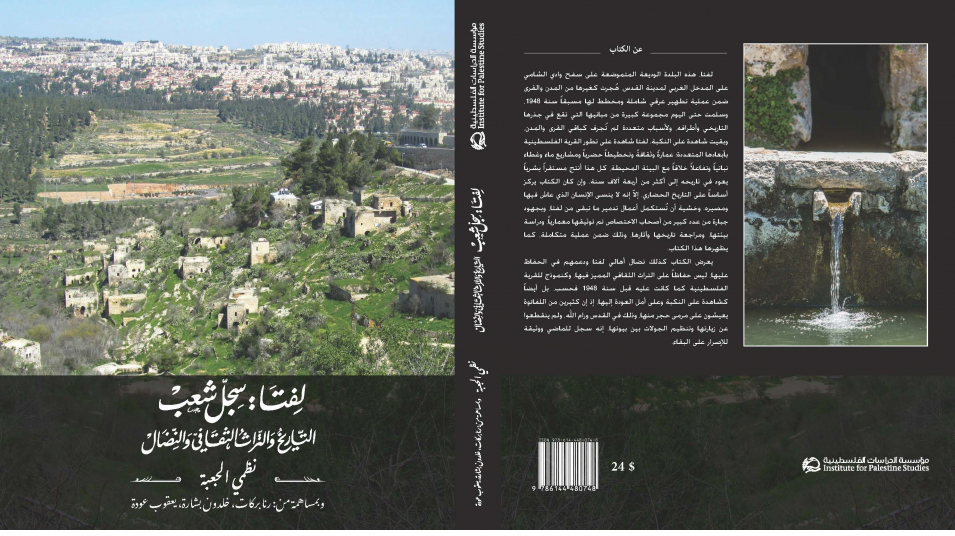In latest release, Nazmi Al Jubeh shines spotlight on Lifta as model of Palestinian cultural heritage
Nazmi Al Jubeh, an assistant professor of history and director of Birzeit University’s Museum, has recently published a book on the history and architecture of Lifta, a Palestinian village on the outskirts of Jerusalem whose residents were expelled after the 1948 occupation of Palestine.
In the book, entitled “Lifta: Register of a People, History, Cultural Heritage, and Struggle,” Al Jubeh, explores how Lifta serves as an example of Palestinian cultural heritage and as a model for Palestinian villages.
Uniquely, explains Al Jubeh, many of Lifta’s buildings survived the destruction that accompanied the 1948 occupation, and they bear witness not only to the pre-1948 life of Palestinians, but also to the development of Palestinian culture, architecture, urban planning, and waterworks over hundreds of years.
In his inquiry, Al Jubeh focuses not only on the buildings of Lifta, but also on its people and their mission to preserve the village as a model of pre-occupation Palestinian architecture and social spaces as well as a symbol of hope that one day they can return to their homes along with the thousands of Palestinians forcibly dispossessed of their lands.
The book includes contributions by Rana Barakat, an assistant professor of history at Birzeit University, who discusses the social life and economy of Lifta; Khaldun Bshara, an architect and a specialist in the conservation of heritage sites, who discusses the development of urban planning and architecture in Lifta; and Yacoub Odeh, who was forcibly displaced with his family from Lifta during the 1948 Nakba and who presents an overview of the efforts by Lifta natives and their descendants to preserve the village against plans to erase this piece of Palestinian history.
At 360 pages — including 116 photographs and diagrams — the book presents an overview of the history, archaeology, architecture, and environment of Lifta as a microcosm of Palestine pre-1948.







